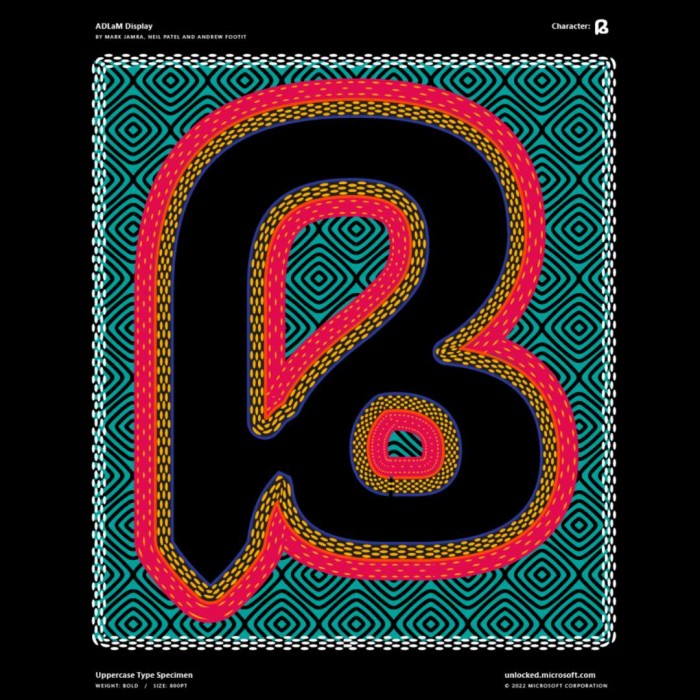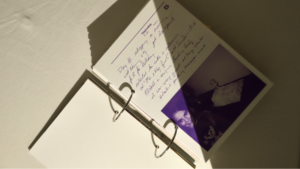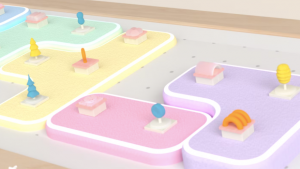Although Pulaar is widely spoken by about 40 million people, for most of its history it has not had its own alphabet. To communicate in writing, the Fulani people of West Africa had to translate messages into and back out of a script that was not their own – Arabic – and which was not fitted to their native tongue’s unique contours, meaning that messages could be easily distorted.
To remedy this, over thirty years ago, in the 1980s, young Guinean brothers Ibrahima and Abdoulaye Barry set about creating an alphabet for Pulaar. Within six months the two schoolboys had developed a working script of 28 letters, written from right to left. The alphabet came to be known as ADLaM, an acronym using its first four letters, Alkule Dandayɗe Leñol Mulugol, which literally means ‘the alphabet that will prevent the culture, the people, from disappearing’.
Despite the brothers’ efforts, as Fulani people began spending more time online, communicating, finding information and expressing themselves on mobile devices, they were forced to use other writing systems that do not accurately reflect Pulaar. Enter Microsoft 365 and advertising agency McCann New York, who partnered on a campaign to convert the Pulaar alphabet into fonts that would enable people to use it online.
They commissioned three renowned type designers, Neil Patel, Mark Jamra and Andrew Footit, to create the ADLaM Display font. The three took inspiration from the spots, triangles, lozenges and chevrons found in the traditional khasas (blankets), wodaabe (hats) and textiles of the Fulani culture. The team also created a series of typographic artworks, which are a further expression of Fulani visual culture.
The campaign, which took home the Grand Prix for Design at the prestigious 2023 Cannes Lions, married purpose and tech to save a language, and preserve culture and community.
‘It’s way beyond what we ever imagined,’ said Abdoulaye Barry. ‘When we were growing up, I didn’t know that the Fulani language extended beyond even Guinea. It’s through this process that I discovered that the Fulani are all over West Africa.’
Both the typeface and the digital artworks are free to download and use from the Microsoft 365 website https://unlocked.microsoft.com/adlam-can-an-alphabet-save-a-culture/.
Read more
Photographs: Microsoft, McCann, Ibrahima and Abdoulaye Barry.








